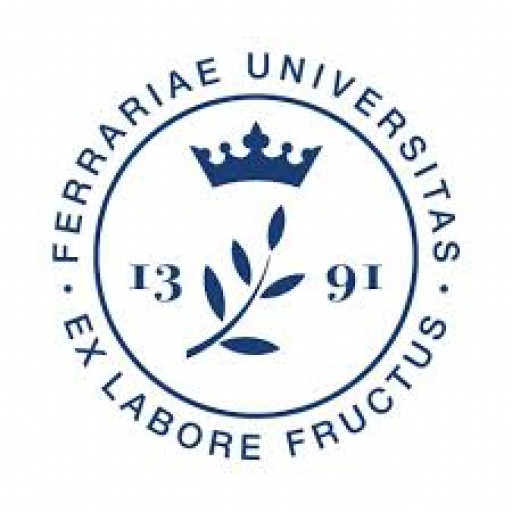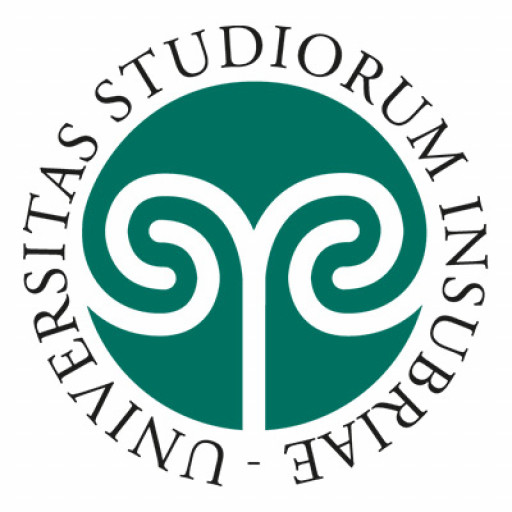Photos of university / #dundeeuni
Description
Why Dundee
Microbiology is the study of organisms - bacteria, fungi, algae, protozoa, and viruses - that are too small to be seen with the naked eye. It is concerned not only with pathogenic microbes that cause disease but also the predominantly beneficial activities of microbes in the environment and their many biotechnological applications.
The wide-ranging nature of our course means you can choose to specialise in environmental, applied or medically-related aspects of the subject.
Why study Microbiology at Dundee?The Microbiology degree programme at Dundee deals with aspects of the subject ranging from those of medical importance (such as infectious diseases and immunology) to those of environmental and biotechnological importance (such as control of pollution and bioremediation).
Major areas of microbiological research include aspects of fundamental and applied microbiology, ranging from mechanisms by which microbial pathogens and their hosts interact to environmental decontamination, and involve molecular, cellular and environmental studies using model organisms as well as those of health and economic significance.
Our Microbiology degree programme reflects the enormous breadth of the subject and recent research developments are reflected in our teaching, particularly at the advanced levels where you can choose modules from a wide menu of options taught at the level of current research.
What's so good about Life Sciences at Dundee?Practical experience
Dundee can offer you a range of Level 4 Research Projects in leading laboratories because of its high level of top-rated research activity in these areas. Many students also work on summer projects between their third and fourth years.
Our close links
Our programme is multidisciplinary, reflecting the overall breadth of microbiology and benefiting from the strengths of the College of Life Sciences at Dundee in the biosciences and from our links with Ninewells Hospital & Medical School and the Scottish Crop Research Institute.
Study abroadThere are also opportunities to study abroad, for example on the Transatlantic Student Exchange S
EmployabilityThe multidisciplinary nature of microbiologists' training means that they find employment in a wide variety of positions in academic research (e.g. biomedical, genetic, agricultural or ecological research), in hospital laboratories, in environmental health and in teaching. Industry employs microbiologists in the manufacture of numerous products, such as pharmaceuticals, chemicals, cosmetics, food and drink, either because microorganisms are used in the process or for reasons of microbiological safety and hygiene.
In addition, many microbiology graduates find careers in management, regulatory affairs, publishing, patent documentation and the media, where their scientific training is valued scheme.
Program Content
The Microbiology program at the University of Dundee offers students a comprehensive introduction to the fundamental aspects of microbiology, alongside advanced topics that prepare graduates for diverse careers in health, research, and industry. Throughout the course, students will explore the structure, function, and classification of microorganisms such as bacteria, viruses, fungi, and protozoa, gaining an understanding of their roles in health and disease. The curriculum emphasizes both theoretical knowledge and practical skills, with extensive laboratory sessions enabling students to develop techniques in microbial culture, identification, and analysis.
Students will study key areas including microbial genetics, molecular biology, immunology, and microbial ecology. The program also covers applied topics such as infectious disease diagnosis, antimicrobial resistance, vaccine development, and microbiological techniques used in industry, healthcare, and environmental management. In addition to core microbiology modules, students may have opportunities to undertake specialized electives, allowing them to tailor their studies towards their interests in clinical microbiology, biotechnology, or research.
Practical experience is a central component of the program, with well-equipped laboratories and research facilities providing hands-on training. Students participate in research projects and experiments designed to simulate real-world challenges faced by microbiologists. The program encourages the development of critical thinking, problem-solving, and communication skills necessary for careers in science and healthcare.
Throughout their studies, students benefit from the expertise of faculty members actively involved in microbiological research, fostering an environment that promotes scientific inquiry and innovation. The program aims to prepare graduates to work effectively in laboratories, healthcare settings, and research institutions, or to continue their education in postgraduate programs. By the end of the degree, students will have a solid understanding of microbiology principles, practical skills in laboratory techniques, and an awareness of the latest developments in the field.
A minimum of 120 SCQF credit points must be achieved overall, including at least 100 credits at SCQF level 11. The program typically includes compulsory modules such as Principles of Microbiology, Molecular Biology of Microorganisms, Microbial Genetics, Immunology, and Medical Microbiology, among others. Students are expected to complete practical laboratory modules that develop hands-on skills in microbiological techniques, including culturing, identification, and antimicrobial testing. The curriculum emphasizes understanding the roles of microbes in health, disease, and the environment, along with laboratory safety procedures and ethical considerations in microbiological research. Assessments include written examinations, laboratory reports, research projects, and presentations. Throughout the degree, students also undertake a research dissertation, which involves designing experiments, collecting data, analyzing results, and presenting findings. The program combines theoretical and practical learning to prepare graduates for careers in healthcare, research, biotechnology, and related fields. It also aims to develop critical thinking, problem-solving, and communication skills necessary for scientific work. To progress through the program, students must achieve specific module prerequisites and maintain a satisfactory academic standing. Elective modules may be available in specialized areas such as virology, mycology, and environmental microbiology, allowing students to tailor their studies to interests or career goals. The program encourages engagement with current issues in microbiology, including antimicrobial resistance and emerging infectious diseases, through seminars, workshops, and guest lectures. Overall, the Bachelor of Science in Microbiology at Dundee fosters a comprehensive understanding of microbiological sciences, combining rigorous coursework with practical experience to ensure graduates are well-equipped for professional or postgraduate pursuits.
Want to improve your English level for admission?
Prepare for the program requirements with English Online by the British Council.
- ✔️ Flexible study schedule
- ✔️ Experienced teachers
- ✔️ Certificate upon completion
📘 Recommended for students with an IELTS level of 6.0 or below.
The University of Dundee offers various funding options for students enrolled in its Microbiology degree programmes. Funding can be sourced through multiple channels, including government-sponsored loans, scholarships, bursaries, and sponsor-supported awards. The UK Government provides tuition fee loans for eligible Home students, which cover the full cost of tuition and are repayable only after graduation and once the student’s income exceeds a specified threshold. International students are generally responsible for the full tuition fee, but there may be some scholarships available to support their studies, such as university-specific bursaries or external grants from scientific organizations or charities. The University of Dundee offers a range of merit-based scholarships for outstanding applicants, which can significantly reduce the financial burden of studying. These scholarships are awarded at the point of admission based on academic achievement or other criteria, and some are competitive whilst others are automatic. Additionally, students can explore external funding opportunities, including research council studentships, industry sponsorships, or competitive grants awarded by scientific bodies, which support research-based components of the programme. The university's Financial Support Office provides personalized advice and assistance to prospective and current students on available funding schemes, application procedures, and deadlines. For students pursuing a Master's or postgraduate research in Microbiology, there are specialized scholarships and funding schemes designed to support research activities, laboratory costs, and conference travel. Students are encouraged to apply early and carefully review eligibility requirements for each funding source. The university also offers financial guidance workshops and counselling to help students manage their finances throughout their studies. Overall, students are advised to research all available options and plan their finances accordingly to ensure a smooth and focused academic experience without undue financial stress.
The BSc in Microbiology at the University of Dundee offers students a comprehensive understanding of microorganisms and their vital roles in the environment, health, and industry. This program is designed to provide a solid foundation in microbiological principles, along with practical laboratory skills essential for careers in research, healthcare, biotechnology, and environmental sectors. Students will study core modules such as cell biology, biochemistry, genetics, and microbiological techniques, alongside more specialized topics including infectious diseases, microbial ecology, and industrial microbiology. The curriculum emphasizes the importance of experimental design and data analysis, preparing graduates for roles in scientific research or further postgraduate study.
Throughout the course, students engage in hands-on laboratory sessions that develop their technical skills and understanding of experimental procedures. The program often includes opportunities for fieldwork, industrial placements, or collaborative projects, which enhance employability and real-world experience. The University of Dundee’s research-active faculty provides expert instruction, integrating the latest scientific developments into the curriculum. The university's facilities include state-of-the-art laboratories equipped for microbiological research and diagnostics.
Students have access to comprehensive support services, including career guidance and opportunities to participate in internships or scientific conferences. The program aims to foster a critical understanding of microbiology's role in global issues such as antimicrobial resistance, infectious disease management, and sustainable biotechnological solutions. Graduates of the program are well-equipped for careers in pharmaceutical companies, healthcare institutions, environmental agencies, or pursuing postgraduate studies. The university’s strong focus on research and collaboration with industries ensures students are industry-ready upon graduation.
The duration of the program is typically three years full-time, with options for part-time study. Admission requirements generally include a good pass in relevant secondary education qualifications, with preferred subjects including chemistry and biology. Overall, the BSc in Microbiology at the University of Dundee represents an excellent pathway for students passionate about microbiology and its applications in solving real-world challenges.











